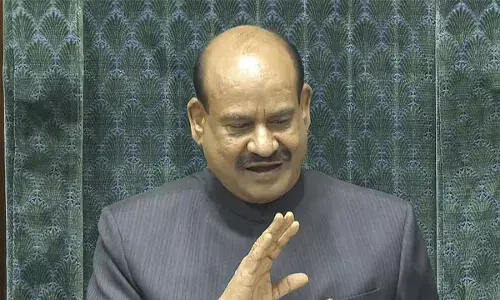Why Is It Important to Save Money and Control Your Expenses?

There is a common saying that ‘A penny saved is a penny earned’. This goes to show that you should always be conscious of the aspects of saving as well as spending.
New Delhi [India] : There is a common saying that ‘A penny saved is a penny earned’. This goes to show that you should always be conscious of the aspects of saving as well as spending. Saving money is not all about reducing on expenses. It is the ability to cater for future contingencies, expenses that are not foreseen and to have enough for the major life events.
Why balancing saving and spending is essential for financial security?
When you are able to manage your expenditure while at the same time saving, you are in a position to meet your planned expenditure as well as the unplanned ones.
For example, setting aside a part of the income for saving before you spend it guarantees that you are ever ready for incidents, such as medical emergency or home renovation. You can rely on savings to further cater for large expenditures such as down payments on houses or children’s education. It also gives liquidity since you have some money saved in easy to access accounts to cater for emergencies without having to borrow.
On the other hand, moderate spending will not allow you to be tied down with unnecessary debts that will affect future plans. It is easy to keep track of the amount of money spent and to set a limit on the amount to be spent when one is tracking his or her expenses frequently so that you do not spend money on unnecessary items while being able to afford some luxuries.
For instance, the 50/30/20 rule where half of the income is spent on necessities, the third on desires and the rest on savings is a good way of being disciplined. Balancing this not only helps in avoiding financial pressure but also allows you to save for future needs such as buying a home and live comfortably.
How can you balance savings and spendings?
Automate your savings
One of the easiest ways to save consistently is to automate the process. Set up automatic transfers from your main account to a savings account each month. This way, you save before you even get the chance to spend. If you're worried about maintaining a minimum balance, you can always open a zero-balance account online. This provides flexibility and removes the pressure of keeping a certain amount in your account.
Track your expenses
Make a habit of tracking your daily expenses, either through an app or a simple spreadsheet. This will give you a clear picture of where your money is going and help you identify areas where you can cut back. For example, you might find that you're spending more than necessary on dining out or subscriptions. Small changes in these areas can lead to more significant savings over time.
Avoid high-interest debt
Debt, especially with high interest rates like credit cards, can quickly become a financial burden. Only borrow when absolutely necessary and make a plan to pay off your debts as soon as possible. When you minimize your debt, you free up more money to save and invest, helping you stay on track with your financial goals. Always consider the long-term impact before taking on new debt.
Regularly review your financial goals
It's essential to periodically check in on your financial goals. As your income or expenses change, your savings strategy might need adjustment. For example, if you get a raise, you can increase your savings contributions. On the other hand, if expenses rise, you may need to adjust your budget to stay on track. Reviewing your goals helps ensure you're always working toward your financial priorities.
Diversify your savings and investments
Saving money in a standard savings account is important, but you can do more with your money by diversifying. Look into options like fixed deposits, recurring deposits, or even mutual funds. These allow you to earn more interest while still keeping some liquidity. This way, you’re not just saving but also growing your money over time.
Final note
However, investing should also be viewed as another aspect of handling your money in the course of your financial life. Instead of keeping your money in your pocket, it is better to start using it by investing in mutual funds, stocks or fixed deposits. These investment tools can be helpful in increasing your money at a much faster rate than simple saving accounts. However, no matter how small the amounts are, you should make consistent investments, such as through a Systematic Investment Plan (SIP). This not only assists you in saving but also investing so that you can be in a better position to meet future goals, such as purchasing a home or saving for retirement. Thus, it is crucial to save, but do not underestimate investing as the means to increase your financial potential.
(No Hans India Journalist was involved in creation of this content)











